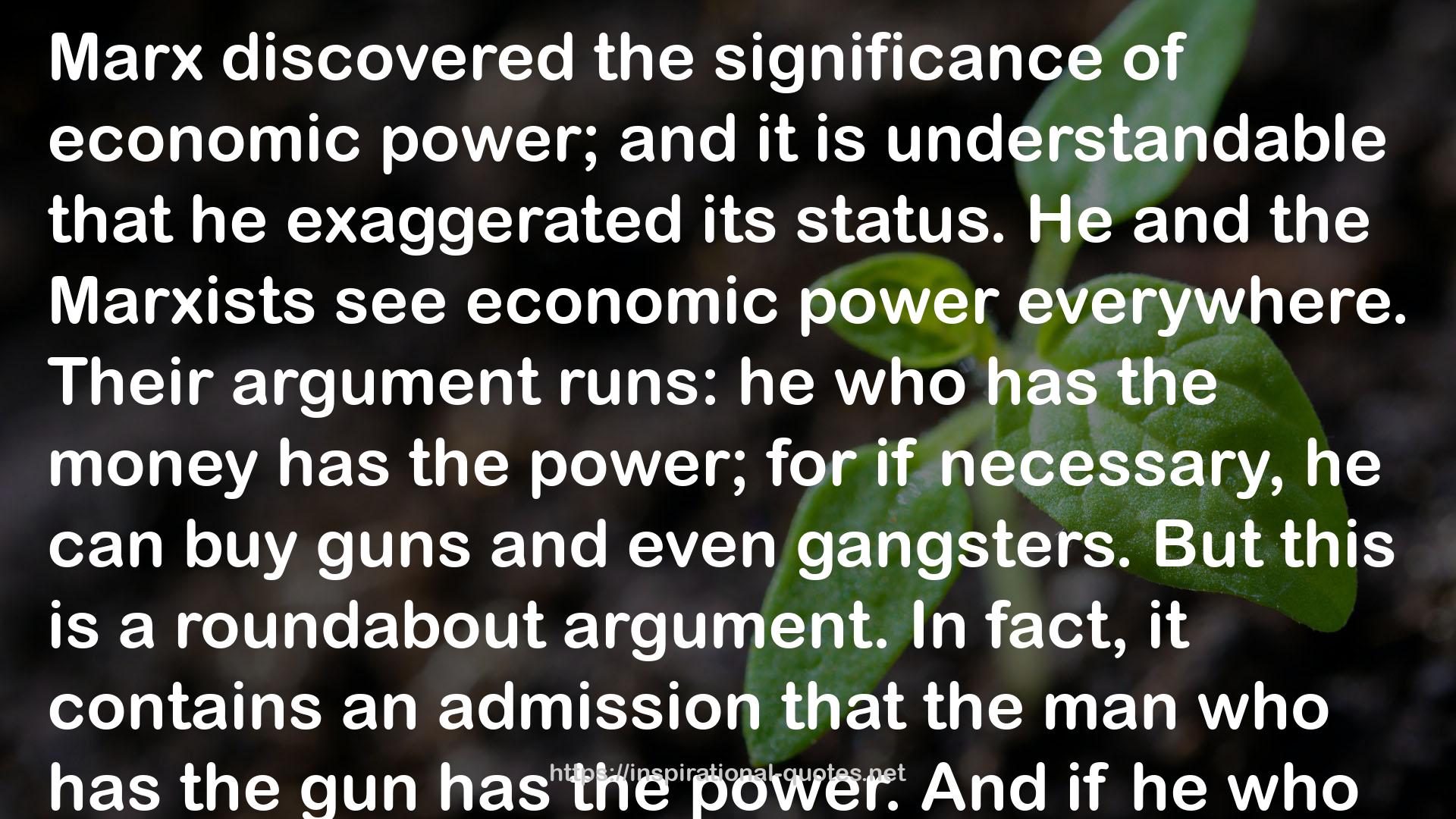" Marx discovered the significance of economic power; and it is understandable that he exaggerated its status. He and the Marxists see economic power everywhere. Their argument runs: he who has the money has the power; for if necessary, he can buy guns and even gangsters. But this is a roundabout argument. In fact, it contains an admission that the man who has the gun has the power. And if he who has the gun becomes aware of this, then it may not be long until he has both the gun and the money. But under an unrestrained capitalism, Marx’s argument applies, to some extent; for a rule which develops institutions for the control of guns and gangsters but not of the power of money is liable to come under the influence of this power. In such a state, an uncontrolled gangsterism of wealth may rule. But Marx himself, I think, would have been the first to admit that this is not true of all states; that there have been times in history when, for example, all exploitation was looting, directly based upon the power of the mailed fist. And to-day there will be few to support the naïve view that the ‘progress of history’ has once and for all put an end to these more direct ways of exploiting men, and that, once formal freedom has been achieved, it is impossible for us to fall again under the sway of such primitive forms of exploitation. These considerations would be sufficient for refuting the dogmatic doctrine that economic power is more fundamental than physical power, or the power of the state. But there are other considerations as well. As has been rightly emphasized by various writers (among them Bertrand Russell and Walter Lippmann25), it is only the active intervention of the state—the protection of property by laws backed by physical sanctions—which makes of wealth a potential source of power; for without this intervention, a man would soon be without his wealth. Economic power is therefore entirely dependent on political and physical power. Russell gives historical examples which illustrate this dependence, and sometimes even helplessness, of wealth: ‘Economic power within the state,’ he writes26, ‘although ultimately derived from law and public opinion, easily acquires a certain independence. It can influence law by corruption and public opinion by propaganda. It can put politicians under obligations which interfere with their freedom. It can threaten to cause a financial crisis. But there are very definite limits to what it can achieve. Cæsar was helped to power by his creditors, who saw no hope of repayment except through his success; but when he had succeeded he was powerful enough to defy them. Charles V borrowed from the Fuggers the money required to buy the position of Emperor, but when he had become Emperor he snapped his fingers at them and they lost what they had lent.’ The dogma that economic power is at the root of all evil must be discarded. Its place must be taken by an understanding of the dangers of any form of uncontrolled power. Money as such is not particularly dangerous. It becomes dangerous only if it can buy power, either directly, or by enslaving the economically weak who must sell themselves in order to live. "
― Karl Popper , The Open Society and Its Enemies
